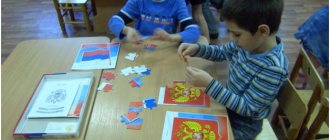Space quiz for middle school students
meteor shower
If children already know the answers to all the above questions very well, you can move on to quizzes for middle school students. Children in grades 5-7 will be interested in formats similar to television shows, for example, “What? Where? When?" etc. That is, the questions are open-ended and the children themselves must choose the answers to them. Here are examples of such a quiz:
Read also: Unleavened dough for pies in the oven
- What is the translation of the word “cosmos” from Greek? (Universe, Universe).
- Is it true that all stars are red like the Sun? (No).
- What is the name of "shooting stars"? (Meteora).
- What is the name of a stone if it came to the planet from space? (Meteorite).
- What affects the color of a star? (Her temperature).
- What color is the hottest star? (White or silver, bluish).
- What color are cool stars? (Red).
- Are planets hot or cold celestial bodies? (Cold).
- What is the name of a celestial body that revolves around the Sun and has a tail? (Comet).
- Where do black holes come from? (They appear where an old star exploded).
Quiz "True or False"
There are different types of questions. You can read statements to the children, some of which are lies. You have to agree or disagree with them. Here is an example of a similar quiz about space for elementary school:
- Our Sun is actually a star. (Yes).
- The sun is larger than other stars. (No).
- We think stars are tiny because they are so far away. (Yes).
- All stars emit light. (Yes).
- The word planet comes to us from the Greek language and is translated as “wandering star.” (Yes).
- The words "Universe" and "Galaxy" mean the same thing. (No).
- Only our planet has its own satellite. (No).
- Not only the Sun, but also other stars have their own system. (Yes).
- People have already flown to Mars. (No).
Quiz for older preschoolers
Five-year-old children already have a certain amount of knowledge about space. They will be happy to go on an interstellar journey. It is important that intellectual questions are interspersed with sports relay races and creative tasks (building a rocket, drawing aliens). After all, preschoolers quickly get tired of monotonous activities.
Below are questions for a quiz about space (with answers) for children of this age:
- What is the name of the planet we are all on now? (Earth).
- What color is our planet? (Blue).
- Which star do we all constantly revolve around? (Sun).
- Name the other planets in the solar system. (Jupiter, Venus, Uranus, Mars, Saturn, Neptune, Mercury).
- What is the name of the satellite of our planet that can be seen at night? (Moon).
- What were the names of the dogs that flew into space and successfully returned back? (Belka and Strelka).
- The first person to go into space. (Yuri Gagarin).
- What clothes do astronauts wear? (Space suit).
- What kind of machine can fly into space? (On a rocket).
- Does an astronaut need spoons and forks? (No, they eat food from tubes).
- What date is Cosmonautics Day celebrated? (April 12, 1961).
- What animals have already been to space? (monkeys, rats, dogs).
- What was the name of the man who was the first to go into outer space? (Alexey Arkhipovich Leonov).
Space exploration quiz
Of course, not all of the questions listed are accessible to first-graders. But they are perfect for 3rd grade students. A quiz about space may also include questions related to its exploration. For example, these:
- What instrument can you use to explore the starry sky? (Telescope).
- What is the name of a device that can move on the surface of the Moon? (Lunokhod).
- The place from which rockets are launched. (Cosmodrome).
- What is the name and patronymic of the first cosmonaut? (Yuri Alekseevich).
- The date when man first went into space. (04/12/1961).
- What was the name of Gagarin's ship? ("Voskhod-1").
- How many times did he circle the globe? (Once).
- Who was the first to leave the ship into outer space? (Alexey Leonov).
- The name of the man who first stepped onto the surface of the Moon. (Neil Armstrong).
- Which woman was the first to go into space? (Valentina Tereshkova).
Space quiz for kids
A quiz about space for preschoolers should contain simple but interesting questions. You can use pictures and illustrations, children will guess the images and answer questions. For preschoolers, it would be appropriate to use riddles; children enjoy participating in such space quizzes.
Questions for space for preschoolers:
- A golden ball looked in the window, and bunnies were dancing. What is this? (Sun).
- At night, a pale-faced ... (Moon) is visible in the sky.
- Fast, like a comet, it takes off into space... (Rocket)
- What do we see when we look out the window, a bright light shines for us... (the sun)
- Golden peas are thrown into the night sky. (Stars).
- The planet flies around the Sun, covered in forests and mountains. Seas and fields flash by. It's called... (Earth).
- What is the name of the astronaut equipment? (Spacesuit)
- The rocket has a driver, a lover of zero gravity. In English: “astronaut”, and in Russian... (cosmonaut)
- To equip the eye and make friends with the stars, to see the Milky Way, you need a powerful... (telescope)
For older preschoolers, you can use the following questions about space:
- What date is Cosmonautics Day celebrated? (April 12, 1961)
- Why was this day called that? (On this day, a man flew into space for the first time)
- What animals have already been to space? (monkeys, rats, dogs)
- What animals flew into space before people and returned safely? (Belka and Strelka)
- The very first in space, a brave Russian guy, our cosmonaut, flew at great speed... (Gagarin)
First cosmonaut Yuri Gagarin
- What was the name of the man who was the first to go into outer space? (Alexey Arkhipovich Leonov)
- What was the name of the first woman to fly into space? (Valentina Tereshkova)
- How do people move in space? (in zero gravity)
- How do astronauts eat in space? (all food is in tubes)
- What planets do you know? (Jupiter, Saturn, Venus, Mars, Uranus, Mercury, Earth, Neptune)
- What character traits should an astronaut have? (strong, brave, hardy, courageous, talented, smart, fast)
- What was the name of the person who became interested in and founded space? (Tsiolkovsky)
For older children (primary school), the following questions about space are suitable.
Quiz "Who is this?"
Some of the questions may be devoted to individuals whose contribution to the history of astronomy and cosmonautics is difficult to overestimate. Let the students remember:
- Which Russian scientist earned the title of father of astronautics and invented the rocket? (Tsiolkovsky).
- Who was the first to study space using a telescope? (Galileo).
- Which ancient Greek scientist argued that the Earth is a sphere? (Pythagoras).
- The name of the designer who built the first rocket and space systems. (Korolyov).
- The dog that was the very first to go into space along with the second artificial satellite of the Earth and did not return back? (Laika).
- He changed his view of the universe, arguing that the Earth was one of several planets, all of which revolved around the sun. (Copernicus).
- During the flight, he responded to the call sign “Kedr”. (Gagarin).
Quiz about space: for adults
- Name the spaceship that exploded after 74 seconds in 1986? (Challenger).
- Which interplanetary automatic stations were involved in research into Comet Halley and Venus and in what year? (Vega station, in 1984-1985)
- Who was the first to see the sky through a telescope and in what year? (in 1610, it was Galileo Galilei)
- Are there such things as shooting stars on the Moon? (there is no such phenomenon on the Earth’s satellite, since this is an atmospheric phenomenon)
- Describe asteroids (These are cosmic bodies between Jupiter and Mars, called small).
- In which constellation of Ursa can the North Star be observed? (In Malaya).
- What is special about variable stars? (their shine tends to change).
- There is a galaxy in the northern hemisphere that can be seen without a telescope, what is it called? (Andromeda's nebula).
- What's the difference between a star and a planet? (the planet reflects light, and the star is self-luminous).
- Name the difference between a refracting telescope and a reflecting telescope (a reflector has a mirror lens, while a refractor has a lens).
- Who discovered the law of planetary motion? (by Johannes Kepler)
- “Ecliptic”, what is it and what constellations does it pass through? (The imaginary line along which the Sun passes its path through the zodiac constellations throughout the year).
- Which moons of Jupiter are called Galilean? (Callisto, Europa, Io, Ganymede).
- What type of galaxy is our solar system? (spiral).
- Where is the largest telescope in the world? (in Zelenchuk in the North Caucasus).
- In the atmosphere of which planet did scientists discover the ozone layer (except Earth)? (in the atmosphere of Mars).
- Which bodies in the solar system have the strongest magnetic fields? (at Jupiter and the Sun).
- Is it possible to observe a total lunar eclipse in the daytime? (impossible, since during this phenomenon the Earth, along with the Sun and Moon, is on the same straight line).
- What kind of rain happens on Venus? (from sulfuric acid).
- “Morning star” - this is what Venus is called when it is in a certain phase, name it? (last quarter).
- What name was given to the tallest mountain on Mars? (Olympus).
- What types of meteorites are there? (iron-stone, iron, stone).
- Who was the first to determine the speed of light? (to American Michelson).
- At what distance from Earth is the highest concentration of ozone in the atmosphere observed? (from 20 to 25 km).
- Is it possible to light a match on the Moon? (this is impossible, there is no oxygen).
- Which star is the brightest in the sky? (Sirius).
- Which planet differs from others in the direction of rotation? (Venus).
- What was the first vegetable grown in space? (potato).
- There are also planets outside the solar system, what are they called? (exoplanets).
- Name the first tourist to fly into space (Dennis Tito).
Quiz Stars in Space
The Stars in Space quiz covers knowledge of astronomy, history, literature, and cinema.
Tests allow you to learn more about bright stars and constellations.
The quiz is designed for a wide range of audiences.
1. Where did the expedition with young cosmonauts go from Moscow, in the Soviet film of the same name?
+ Cassiopeia Orion Phoenix
2. What constellation is depicted on the state banner of the Commonwealth of Australia?
Southern Crown of the Bird of Paradise + Southern Cross
3. How many stars does the Bucket unit in the constellation Ursa Major?
Five + Seven Nine
4. Who is the author of the famous science-fiction-futuristic novel telling about space adventures in the Andromeda nebula?
A. Azimov + I. Efremov S. Lem
5. Where are the three stars concentrated that are at the minimum distance from the Sun?
Bootes + Centaurus Auriga
6. What is the name of the dark nebula that is clearly visible against the background of the Milky Way?
+ “Coal Bag” “Smoke Stack” “Black Cuttlefish”
7. What queen’s name does the group of stars that resembles a woman’s curls have?
Varvara's Braid Elena's Curls + Veronica's Hair
8. How many constellation silhouettes are there on the blue circle in the central part of the Brazilian flag?
3 + 9 12
9. With the appearance in the sky, which bright star in Ancient Rome announced the beginning of summer vacation for students - vacation?
+ Sirius Antares Altair
10. From what constellation did the puppy nicknamed Puppy, the hero of the story of the same name by L. Nemenova, move to Earth?
Great Dog Wolf + Hound Dogs
Quiz for high school students
Students in grades 9-11 love intellectual games and enjoy competing in erudition. A quiz about space will help them refresh their knowledge and show their ingenuity. Here is a small list of questions:
- When did the era of astronautics begin? (Since the launch of the very first satellite on October 4, 1957).
- How long did Gagarin stay in space? (108 minutes).
- How can you tell a planet from a star with the naked eye? (The planets emit a steady light while the stars twinkle.)
- Science that studies the Universe. (Astronomy).
- What is bigger - the Universe or the Galaxy? (The Universe, Galaxies are its components).
- What is the name of the galaxy we live in? (Milky Way).
- How often is a new star born in the Universe? (Once every 20 days).
- Show how big the first satellite was. (58 cm).
Entertaining tasks
It’s good if a quiz about space engages not only the memory of schoolchildren, but also makes them think. Children love mental puzzles. You can ask them the questions listed below:
- Will an astronaut be able to pour water from one glass to another while in orbit? (No, since in space he is in weightlessness).
- If, during the construction of an orbital station, an astronaut is squeezed between two blocks that weigh hundreds of kilograms on Earth, will he suffer? (Yes, since bodies in space lose only weight, maintaining their mass).
- What is better to take with you into space to maintain good physical shape: dumbbells or an expander? (An expander, because you still have to apply force to stretch the springs).
- How many people does it take to carry a load of 120 kg on the surface of the Moon? (Maximum two, since gravity there is 6 times less than on our planet).
- Is it possible to determine north on the Moon using a compass? (No, there is no magnetic field there).
- Is it possible to see Ursa Minor from Venus? (No, the sky on the planet is always covered with dense clouds).
A quiz about space will surely captivate the kids, especially if the winners receive prizes. It can be timed to coincide with the passage of relevant topics in the school curriculum or for Cosmonautics Day. All that is required from the organizer is to show a little imagination and come up with game rules that are interesting for children of this age.




